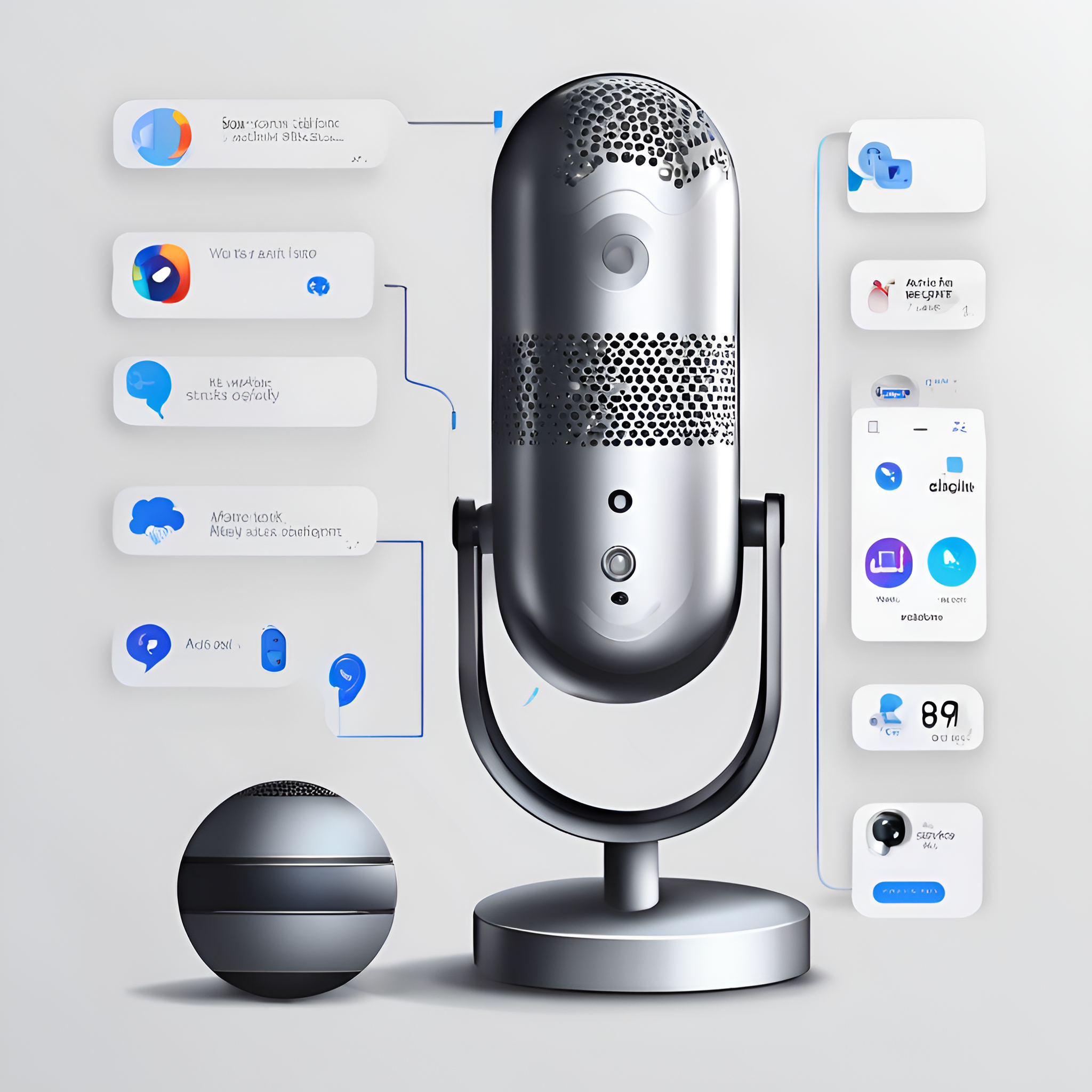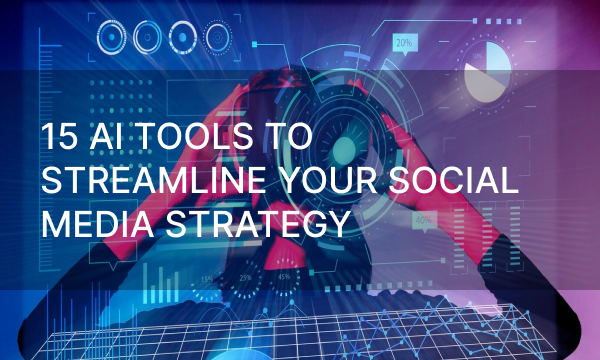Intro: A brief look at AI marketing tools and their importance for business growth.
AI marketing tools can analyze huge amounts of data, allowing companies to personalize ad campaigns and reach their target audience more effectively. By analyzing consumer behavior, their preferences and needs, companies can better understand their target audience and tailor their marketing strategies accordingly. AI marketing tools automate routine business tasks, allowing companies to focus on high priorities and to maximize their marketing efforts while not hiring additional staff.
In this article, we will delve into the importance of using artificial intelligence for business growth and provide an overview of the 10 best AI marketing tools that will shape the future of marketing. We will look at chatbots, predictive analytics tools, content creation and analysis, personalization mechanisms, sentiment analysis tools, marketing automation, recommendation algorithms, visual search and many others. Read on to discover the best AI marketing tools to grow your business.
10 AI Marketing Tools to Grow Your Business in 2024
As an integral part of the digital landscape, AI marketing tools offer innovative solutions for marketing strategies. Chatbots and voice assistants have replaced humans, communicating with customers in a conversational manner, providing them with quick answers to their queries. AI data analysis and content creation tools generate content that resonates with the relevant audiences and is optimized for SEO.
Meet the best AI marketing tools to grow your business:
1. Chatbots
Chatbots recognize human queries and respond to them, imitating conversational speech. Real-time feedback and personalized experiences significantly improve customer service and build brand trust. With the rise of e-commerce and online shopping, customers are demanding immediate responses to their concerns. Chatbots can handle multiple queries and provide quick and accurate answers as well as 24/7 customer support.
- IBM Watson recognizes human language and responds appropriately to users’ questions, interacting with them and providing customer service. It is compatible with various platforms such as Facebook Messenger and Slack, making it easy to integrate into existing business systems.
- Google Dialogflow understands complex user queries and provides relevant answers in multiple languages. It seamlessly integrates with other Google products such as Google Cloud and Google Assistant. This is a good option for brands looking to expand their global presence and provide multilingual support to their customers.
2. Voice Assistants
AI-powered voice assistants respond to voice commands and perform various tasks for users. By analyzing voice commands and user interactions, companies can better understand their customers’ needs and preferences. They can also be used to collect feedback, providing businesses with valuable information about their products and services.
- Nuance Dragon accurately transcribes speech and executes commands with high precision, from dictating emails and documents to controlling smart home devices. Customizable features and the ability to adapt to different voices and accents provide a more personalized experience and improve accuracy.
- Hootsuite’s Hootbot allows users to perform various tasks via voice commands and request information about post performance or audience demographics. Multilingual support allows businesses to switch between languages and manage their social media accounts in different countries to connect with their global audiences.
3. Predictive Analytics
Predictive analytics relies on historical data to predict future events and trends. By analyzing past data and identifying patterns, companies can make more informed predictions about customer behavior, market trends, and potential risks and opportunities. This leads to more effective marketing strategies and increased profits.
- IBM Watson recognizes and analyzes large volumes of unstructured data, including text, images and audio to gain valuable information from a variety of sources, including customer reviews, social media and industry trends.
- Salesforce Einstein predicts customer behavior, personalizes experiences, and automates tasks. It analyzes customer data in real time and provides insights into customer preferences and behavior, allowing you to tailor marketing and sales strategies.
4. Personalization and Recommendation Engines
Personalization and recommendation engines allow companies to create unique and personalized experiences for each customer, resulting in increased customer loyalty. AI-powered recommendation systems use data and algorithms to analyze customer behavior and provide personalized product recommendations. They rely on factors such as past purchases, browsing history and demographic information to offer products or services that are most likely to be of interest to the customer.
- Dynamic Yield analyzes customer data, behavior and preferences in real time to create a personalized user experience. It is compatible with websites, mobile apps and other digital channels. Brands can create personalized product recommendations, targeted offers and personalized content tailored to each individual customer.
- Insider provides businesses with valuable insights and forecasts as it analyzes large volumes of data in real time and identifies patterns and trends. It creates personalized recommendations, increasing customer loyalty. By analyzing past data and trends, the tool can make accurate predictions of future performance.
5. Image and Video Recognition
Visual content has become a crucial aspect of marketing strategies. AI tools help companies analyze and categorize images and videos, providing valuable insights into consumer behavior and preferences. The collected data is used to create targeted and personalized marketing campaigns, resulting in higher conversion rates and better ROI.
- Google Vision AI analyzes visual content and extracts information to categorize and organize it, making it easier to find specific images and videos. It can automatically tag and categorize product images to make them easier to search.
- Clarifai allows companies to train their own AI models to recognize images and videos and then integrate them into various applications and platforms. It is a comprehensive and customizable solution for enterprise image and video recognition needs.
6. AI-Driven Content Creation Tools
AI-driven content creation tools generate engaging and informative content to attract and retain customers. They analyze data and insights from various sources to create personalized and relevant content for different platforms and channels. These tools improve the overall quality of content and generate content that is optimized for SEO and readability.
- Wordsmith generates high-quality, personalized content in minutes by incorporating a brand voice in messaging. A variety of content formats, such as articles, social media posts, product descriptions, make it versatile and suitable for a wide range of content needs.
- Articoolo quickly generates high-quality content formats after analyzing a given topic and collecting information from various sources. A wide range of customization options, from choosing the tone and writing style to length and structure of the content, gives users complete control over the content creation process.
7. AI-Powered Social Media Marketing Tools
AI social media marketing tools use data collection and analysis to understand consumer behavior and preferences in order to generate content that resonates with the target audience. This leads to increased engagement and higher conversions.
- Hootsuite helps schedule, publish, and analyze social media content. With its social listening feature brands can monitor mentions to suggest engaging posts. It also recommends the best time for posting based on audience engagement patterns.
- Buffer schedules and publishes posts, and analyzes data and conversion. It creates visually appealing images for social media posts, provides companies with analytics and insights to understand their audience behavior and optimize their social media strategy.
8. AI-Enhanced Customer Relationship Management Systems
In the context of Customer Relationship Management (CRM) systems, AI is used for business automation, customer relationship management, data analysis, target audience segmentation and personalization of communication. The collected and analyzed in real time data is used to quickly identify patterns and trends in customer behavior to tailor marketing strategies and improve the customer experience.
- Salesforce Einstein analyzes massive amounts of data in real time to identify patterns and trends in customer behavior. It makes intelligent recommendations for upselling and cross-selling, and predicts customer churn to prevent problems and retain consumers.
- Oracle CX Cloud includes AI chatbots that process customer queries and provide quick and effective solutions, reducing the need for human control. It uses sentiment analysis to understand customers’ emotions and tailor responses accordingly, creating a more personalized customer experience.
9. Data analysis AI tools in marketing
AI tools collect, analyze and organize huge amounts of data in a matter of seconds, identify patterns and make accurate predictions, which minimizes the risk of errors and allows you to obtain more accurate information. They also perform complex tasks and assist in data visualization by creating interactive charts, graphs and dashboards.
- IBM Watson analyzes large amounts of unstructured data to gain a deeper insight into target audience, their preferences, and behavior patterns. It understands and interprets human language, making it easier to gather customer feedback and sentiment. It generates personalized recommendations and content for each customer.
- Google Cloud AI platform quickly analyzes large data sets and identifies patterns and trends to make accurate predictions and data-driven decisions. It is compatible with other Google products, allowing you to collect and combine customer data from multiple sources to gain a holistic view of your target audience.
10. AI-Powered Email Marketing Tools
AI email marketing tools analyze data and predict customer behavior, allowing businesses to send targeted and relevant emails. They segment the email list by demographics, past purchases, browsing history, making sure that the right message reaches the right customer at the right time. They automatically create subject lines, test different email designs, and suggest the best time to send emails based on the recipient’s behavior.
- Phrasee creates engaging and effective email subject lines, body copy, and calls to action. It analyzes data from previous email campaigns to generate unique and compelling content that increases the chances of getting more people to open them and to click on the links.
- Persado generates content for email campaigns. It creates more personalized and targeted emails by analyzing customer behavior and data such as demographics, purchase history, and past interactions.
Conclusion
The role of AI in modern business operations is increasingly prominent and its future is full of potential. It has the power to enhance customer experiences, increase efficiency, and drive business growth. By leveraging the power of AI, businesses can gain a deeper understanding of their customers, create more personalized and effective marketing strategies, and ultimately drive success and growth.
From chatbots to personalized recommendations, AI tools are changing the way companies interact with their customers. With the help of AI, companies collect and analyze huge amounts of data from various sources to create customized content and targeted advertising. This improves consumer loyalty and increases conversion. In summary, AI tools enable brands to provide more efficient customer experiences while saving time and resources.












